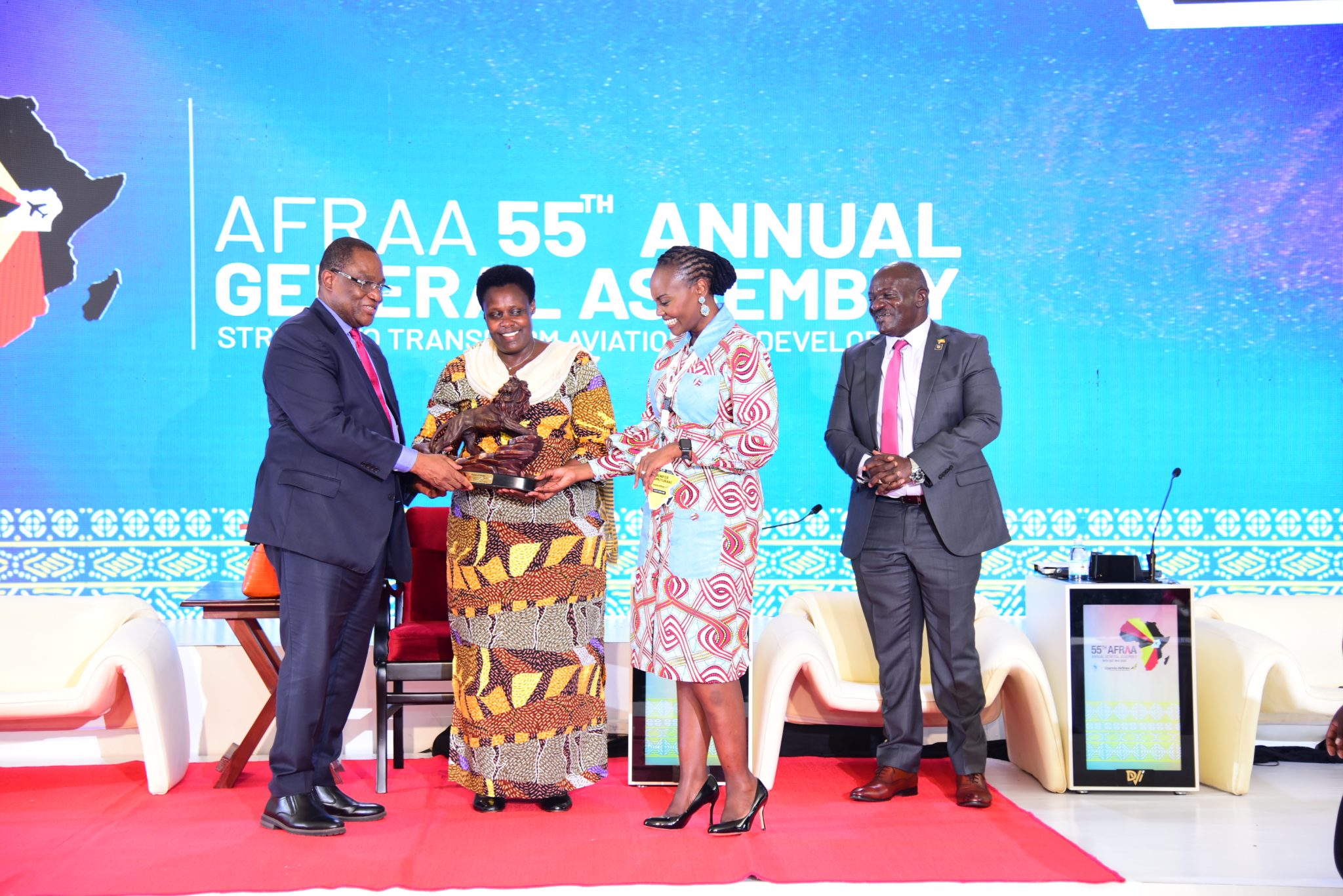The African Airlines Association (AFRAA) and Ugandan Airlines have concluded the 55th Annual General Assembly in Kampala, Uganda, challenging African airlines and air transport stakeholders with ‘new thinking on initiatives and strategies that will drive the sustainability of the air transport sector to realise its potential’.
Bringing together 569 delegates from 49 countries, the conference made a number of key recommendations: recognizing the ‘transformational value’ of the Single African Air Transport Market (SAATM) to African airlines, the need to embrace collaborative and effective sustainable initiatives, and the role gender diversity and inclusivity plays in African’s aviation future.
AFRAA’s defines it four core priorities for 2024 as safety, connectivity and route development, air transport sustainability and the implementation of AFRAA’s five-year strategic plan.
“As Africa pursues the goal of continental integration, it will be important to focus on growing air transport for ease of intra-African connectivity,” highlighted chief guest and Vice president of Uganda, Jessica Rose Epel Alupp. Describing the national carrier as “an extension of national infrastructure,” she added: “air connectivity has become central to our development agenda”.
The Secretary General’s State of the Industry report highlighted the average passenger load factor recorded in Africa for 2022 to be 71.6%, which while a 10.6% increase compared to 2021, remained 7% less than the global average: potentially attributed to the ‘mismatch between capacity and demand and the limited commercial cooperation between carriers’.
During the third quarter of 2023, African airlines reached the same revenue passenger kilometres for the same period in 2019. AFRAA also estimates the number of passengers carried in 2023 to be 89% of 2019’s volume, with northern African services accounting for 39.5% of the continent’s total traffic.
The 56th annual event will be hosted by EgyptAir in November 2024.
